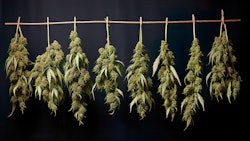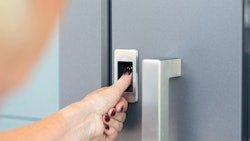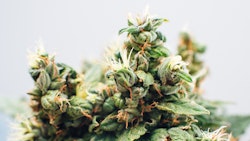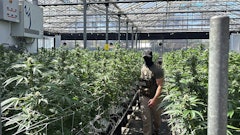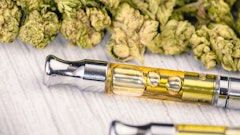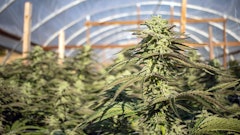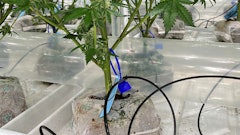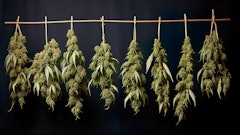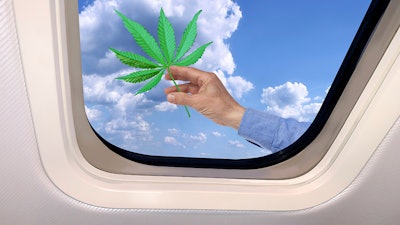
The Wednesday before Thanksgiving, known as Green Wednesday in the cannabis industry, is one of the biggest sales days of the year for medical and adult-use dispensaries throughout the U.S.
In 2022, Green Wednesday featured a 48% sales increase compared to the three previous Wednesdays and was the third largest sales day of the year at the time, according to cannabis data and research company Headset’s analytics from seven of the nation’s most mature adult-use markets.
RELATED: Green Wednesday Third Largest Sales Day of 2022 (So Far)
Notably, last year’s holiday sales uptick was largely attributed to consumer purchases of more discrete product categories, such as topicals, beverages and edibles, according to Headset. In 2020, for example, beverage sales skyrocketed 89% and edibles sales 81% on Green Wednesday, according to Headset.
But why are these more “discrete” product categories more popular heading into the Thanksgiving holiday as opposed to flower, prerolls or concentrates?
Some cannabis consumers are perhaps trying to be more secretive with their usage around family members or simply find these products more convenient in a social setting. Others may find beverages or edibles more suitable to travel with, especially if they’re going out of state.
But that begs another question: Does the U.S. permit flying with cannabis? The short answer is no.
Cannabis and certain cannabis-infused products, including some cannabidiol (CBD) oil, remain illegal under federal law except for products that contain no more than 0.3% THC on a dry-weight basis (federally defined as hemp) or that are approved by the U.S. Food and Drug Administration.
In other words, federal law prohibits individuals or businesses from traveling across state lines with cannabis, even if that cannabis was purchased legally in one state and is transported to another state with similar cannabis laws. And this includes medical cannabis. Although, the U.S. Transportation and Security Administration (TSA) does not require passengers to use original prescription bottles for medication.
And this is where the discreteness hook comes into play: TSA agents are not actively screening passengers’ luggage for cannabis or cannabis products.
“TSA’s screening procedures are focused on security and are designed to detect potential threats to aviation and passengers,” according to the administration’s screening policies on cannabis. “Accordingly, TSA security officers do not search for marijuana or other illegal drugs, but if any illegal substance is discovered during security screening, TSA will refer the matter to a law enforcement officer.”
And that’s where trouble can occur. If a TSA agent screens a passenger’s luggage with suspicion he or she is flying with something on the banned items list, such as certain flammables or firearms, and subsequently discovers cannabis, then the agent is required by federal law to notify the appropriate agency when the discovery appears to be a federally illegal substance, according to TSA.
If TSA notifies a local authority to a cannabis traveling violation, potential repercussions vary from state to state in the current patchwork of legalization in the U.S. In New York, for example, adults 21 and older are legally allowed to possess up to 3 ounces of cannabis flower or 24 grams of concentrate.
Shortly after New York legalized adult-use cannabis in March 2021, a top federal agent clarified it is not the TSA’s intention to confiscate cannabis from a passenger’s person or luggage.
Bart R. Johnson, a former New York State Police colonel who is the federal security director at the Department of Homeland Security-TSA for 15 regional airports, including Albany International, said, “We don’t seize [cannabis]. We just look for threats—explosives, knives, guns; we don’t look for illegally possessed narcotics. When we notice something suspicious on a pat-down or something like that, and then we discover that it’s marijuana, … we’re looking to see if it’s a threat. … If it turns out to be something that appears to be an illegal substance, we notify law enforcement.”
RELATED: Flying With Cannabis in New York? Rest Easy.
Albany County Sheriff Craig Apple, whose department patrols the airports in its jurisdiction, told Times Union at the time that his deputies were no longer issuing tickets or making arrests if TSA officials call them to a security checkpoint and they find a traveler in possession of a state-legal amount of cannabis.
This is good news for those who do get caught flying with cannabis in New York’s Albany County. But this could still delay one’s travels and/or cause a missed flight.
Other counties or states may not be so lenient.
The bottom line is that cannabis remains a federally illegal substance, and the U.S. Customs and Border Protection put out a holiday reminder about this on Nov. 20 ahead of Thanksgiving travels: "Remember, marijuana remains illegal in the United States federally. Do not cross the border with any marijuana or marijuana products."











